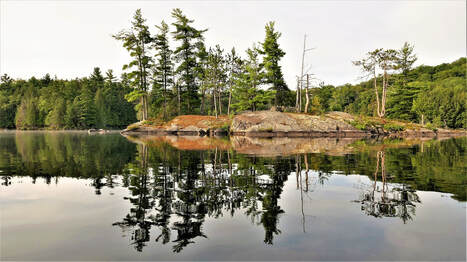Lake salinization drives consistent losses of zooplankton abundance and diversity across coordinated mesocosm experiment

01.06.2022
A CIEE funded working group organized by Shelley Arnott (Queen's) and Bill Hintz (Rensselaer Polytechnic Institute) published this article from experiments across 16 sites to understand the response of lake communities in North America and Europe to human-induced salt contamination. Researchers quantified the response of zooplankton abundance and community structure to a broad gradient of environmentally relevant chloride concentrations. Overall, the study demonstrates that aggregate properties of zooplankton communities can be adversely affected.
https://aslopubs.onlinelibrary.wiley.com/doi/10.1002/lol2.10239
A CIEE funded working group organized by Shelley Arnott (Queen's) and Bill Hintz (Rensselaer Polytechnic Institute) published this article from experiments across 16 sites to understand the response of lake communities in North America and Europe to human-induced salt contamination. Researchers quantified the response of zooplankton abundance and community structure to a broad gradient of environmentally relevant chloride concentrations. Overall, the study demonstrates that aggregate properties of zooplankton communities can be adversely affected.
https://aslopubs.onlinelibrary.wiley.com/doi/10.1002/lol2.10239
Current water quality guidelines across North America and Europe do not protect lakes from salinization
01.06.2022
This article examines current water quality guidelines across North America and Europe and whether they adequately protect lake food webs from human-induced salinization caused by the use of road deicing salts, agricultural practices, mining operations, and climate change. Researchers concluded current elevated chloride (Cl−) thresholds across North America and Europe do not adequately protect lake food webs and water quality guidelines should be developed where they do not exist, and there is an urgent need to reassess existing guidelines. This article is from a CIEE funded working group organized by Shelley Arnott (Queen's) and Bill Hintz (Rensselaer Polytechnic Institute).
https://www.pnas.org/doi/10.1073/pnas.2115033119
This article examines current water quality guidelines across North America and Europe and whether they adequately protect lake food webs from human-induced salinization caused by the use of road deicing salts, agricultural practices, mining operations, and climate change. Researchers concluded current elevated chloride (Cl−) thresholds across North America and Europe do not adequately protect lake food webs and water quality guidelines should be developed where they do not exist, and there is an urgent need to reassess existing guidelines. This article is from a CIEE funded working group organized by Shelley Arnott (Queen's) and Bill Hintz (Rensselaer Polytechnic Institute).
https://www.pnas.org/doi/10.1073/pnas.2115033119
